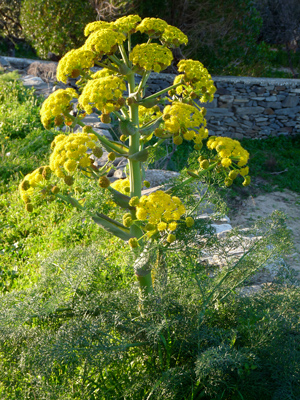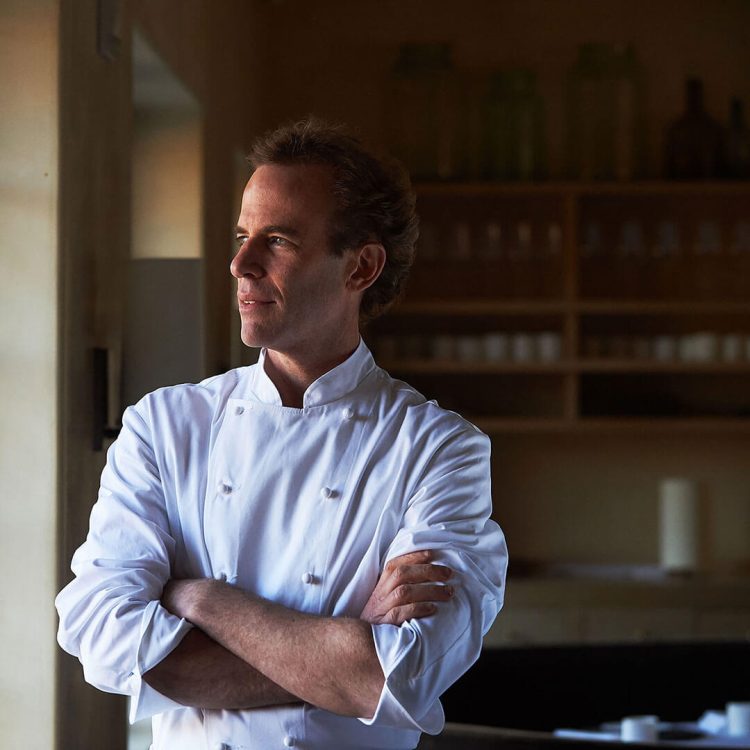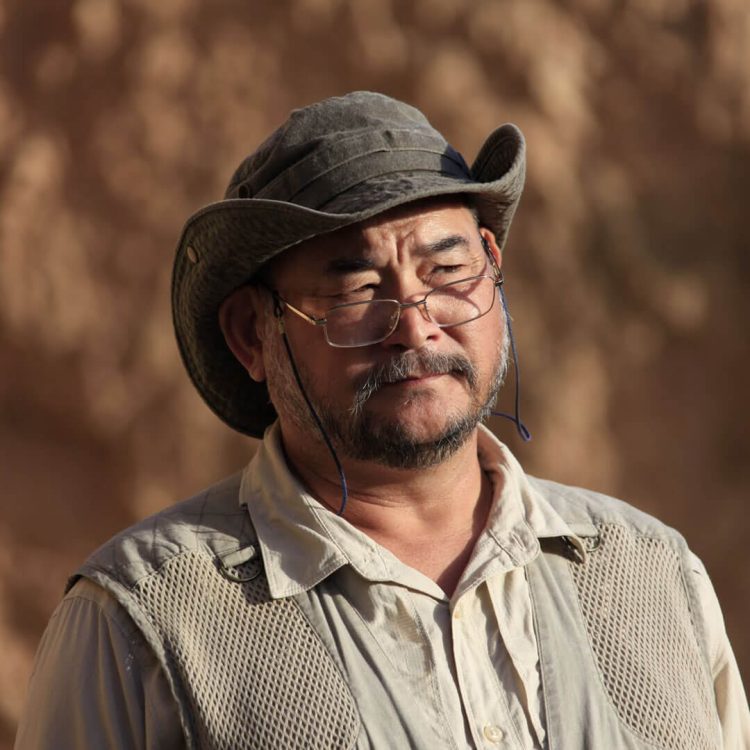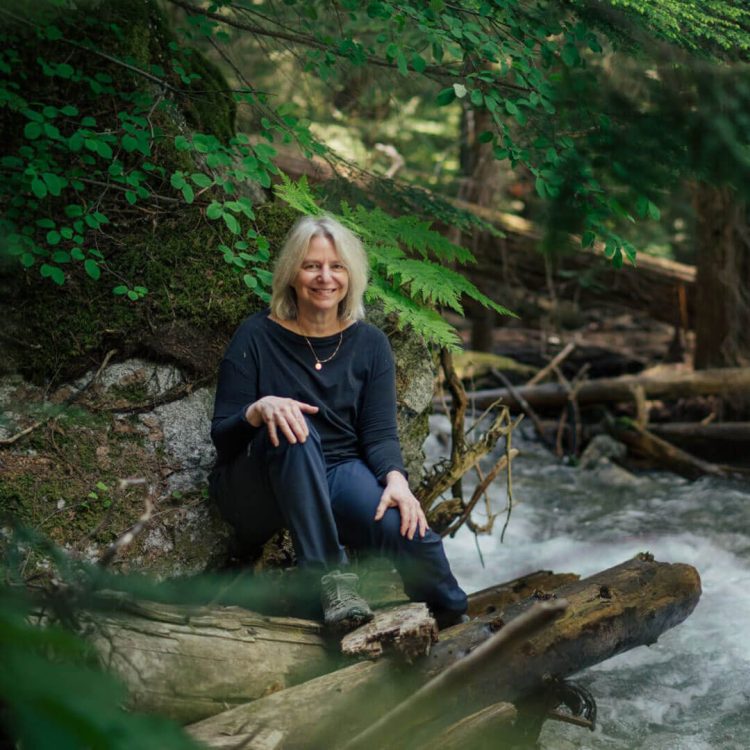This is my first winter on Paros. I wake up every morning, I look out of the window and I feel really lucky to be here. I know I am not the only one to wonder why people choose to come here for holidays only in peak summer.
-
The ever-changing landscape, painted in vibrant greens, yellows, blues and greys, is the magnificent stage for all kinds of wonders manifesting in front of our dazzled eyes. Humans, plants, animals, weather, wind, water, soil and minerals, all moving together in the eternal dance of life.
Alas, my permaculturist alter ego does not let me muse on the beauties of nature for long. I cannot help wondering about the fragility of our habitat, the damage we inflict on it, the damage we could avoid. So, what could we actually do? How can we ensure the viability of this small island settlement? Let’s have a look at the sustainability basics…
-

Ferula communis
If we wish to render any human society, project, business or endeavour sustainable, we have to consider it from four distinct perspectives: environmental, economical, social and worldwide. All perspectives are interconnected and, in the long run, you cannot exclude anyone without jeopardising the overall sustainability of the system.
Any activity on the island should not only be environmentally safe but also restorative of damage previously done. The most precious asset of this island – and hence of its inhabitants – is its natural resources and beauty. Imagine what life would be like if the water resources were exhausted, the seashore polluted, the topsoil vanished and a villa was ‘planted’ on every free plot of land.
Social sustainability is about integration instead of exclusion, about cooperation instead of competition, about accountability instead of corruption. The most successful permaculture projects I have seen throughout the world are based on strong local communities, ready to help their members in periods of hardship. And the most successful green businesses I have encountered create jobs for the inhabitants, help preserve and promote local culture and try to coalesce new ideas and practices with old wisdom and experience.
It is hard to exaggerate the importance of financial sustainability in our communities, especially nowadays. And it is also hard not to see the interconnection between environment, community and prosperity. But it seems necessary to disprove certain myths that obscure this vision. Although ‘you cannot be green if you are in the red’ as the permaculture proverb goes, things seem to have changed a lot in the last few years, and green solutions in energy consumption or even in business are no longer considered a luxury. For example, organic agriculture and permaculture practices have brought many farmers out of desperate circumstances in a number of developing countries and have become a successful business model in many parts of the world. Even on Paros, it is no longer so expensive to invest in solar and wind energy, and it is, at times, even more economical to stay out of the electricity grid altogether.
Bill Mollison, the founder of permaculture, in his ‘Permaculture Designer’s Manual’ says that it is not enough to think globally and act locally. You have to act and think both locally and globally. Even if we create a paradise for ourselves on this one island in the Aegean Sea, we would not be able to exclude ourselves from broader influences like climate change or the whims of the world economy. We would not be able to stop the sea levels rising or the increase in global oil prices. But we can connect with other communities around the Mediterranean and, with the global community, raise awareness on environmental and social issues, look for common issues, communicate the solutions we have found and the efforts we are making, as well as put more pressure on governments and politicians to do the right thing.
Ways in which we can move towards sustainability in our personal, professional and public lives are endless, because there is so much damage we can amend and so much room for improvement. Every little action counts, locally and globally. Don’t get disheartened. As Lao Tzu said: “A journey of a thousand miles begins with a single step.”





